In the maritime industry, the importance of security cannot be overstated. With increasing global threats, it is crucial for professionals to be equipped with the necessary skills to ensure ship and port facility security. This is where the PFSO (Port Facility Security Officer) and MFSO (Ship Security Officer) roles come into play, governed by standards set by the International Maritime Organization (IMO). Our PFSO/MFSO course provides comprehensive training that aligns with the IMO Model Course
3.21 standards, ensuring that our participants are well-prepared to handle security challenges effectively. As a DNV Certified Maritime Training Provider, Virtual Maritime Academy guarantees that our course meets the highest standards of maritime training and security.
Learn More about our PFSO/MFSO Course!
Key Takeaways
- The PFSO/MFSO course provides essential training in line with IMO Model Course
3.21 standards. - Key components of the IMO Model Course
3.21 include risk assessment and security culture. - Our course curriculum is meticulously designed to fulfill all IMO guidelines and requirements.
- Participants gain significant benefits, including enhanced job prospects and compliance with international regulations.
- Completing our course ensures professionals are well-prepared for maritime security roles.
Introduction to PFSO/MFSO and IMO Model Course 3.21
The role of a Port Facility Security Officer (PFSO) is critical in maintaining the safety and security of maritime operations, especially in today’s evolving maritime landscape. At Virtual Maritime Academy, we recognize the significance of this role and offer a comprehensive PFSO/MFSO Course that is not only DNV Certified but also aligns seamlessly with the IMO Model Course
3.21 standards. This means that our course is designed to meet the global benchmarks set by the International Maritime Organization, ensuring that trainees acquire the necessary competencies to effectively manage security risks at port facilities. By participating in our course, learners gain insight into best practices and essential security measures, preparing them to safeguard maritime environments against various threats. With our expert instructors and state-of-the-art online learning platform, Virtual Maritime Academy provides a flexible yet robust training experience tailored to meet the needs of aspiring PFSOs.
Key Components of the IMO Model Course 3.21
The PFSO (Port Facility Security Officer) course offered by Virtual Maritime Academy is meticulously designed to align with international maritime security standards, specifically the IMO Model Course 3.21. This comprehensive training focuses on the essential components that ensure port facility safety and security in accordance with the guidelines set forth by the International Maritime Organization (IMO). Key components of the IMO Model Course 3.21 include threat assessment, security planning, and emergency procedures, all vital for a successful security framework at port facilities. By integrating these components, our PFSO/MFSO course not only meets the rigorous standards expected by the maritime industry but also prepares participants to effectively manage security risks. As a DNV Certified Maritime Training Provider, Virtual Maritime Academy ensures that every aspect of our PFSO course is delivered with the utmost quality and adherence to best practices in maritime training, fostering a secure environment for port operations and elevating industry standards.
Learn More about our PFSO/MFSO Course!
How Our Course Curriculum Meets IMO Standards
In today’s fast-paced maritime world, ensuring that security management practices align with international standards is essential. At Virtual Maritime Academy, we are proud to offer our PFSO/MFSO Course, which aligns with the IMO Model Course 3.21 standards, ensuring comprehensive security training for port facility security officers and maritime security operatives. The course curriculum has been meticulously designed to meet the requirements outlined by the International Maritime Organization (IMO), providing participants with the knowledge and skills necessary to excel in maritime security roles. From risk assessment to emergency response planning, our training modules cover critical aspects mandated by the IMO model course, ensuring that graduates are well-prepared to address modern maritime security challenges. With our commitment to quality education and our status as a DNV Certified Maritime Training Provider, you can trust that our PFSO Course not only meets but exceeds industry standards, equipping you with the essential tools to enhance security protocols within your organization.
Benefits of Completing Our PFSO/MFSO Course in Compliance with IMO Guidelines
Completing our PFSO/MFSO course, offered by Virtual Maritime Academy, a DNV Certified Maritime Training Provider, brings numerous benefits that align with the International Maritime Organization (IMO) guidelines and Model Course 3.21 standards. This course is designed to enhance your knowledge and skills in port facility security, ensuring that you are well-equipped to handle various security challenges in the maritime industry. By participating in our course, you will gain a comprehensive understanding of the legal frameworks and best practices for maritime security, including risk assessment, security measures, and incident response procedures. Furthermore, our DNV certification guarantees that the training you receive meets the highest international quality standards, thereby improving your credibility and employability in the maritime sector. As the shipping industry continues to evolve, being certified in accordance with the IMO Model Course 3.21 not only ensures compliance but also promotes a culture of safety and security in port operations, making our PFSO/MFSO course a valuable asset to your professional development.


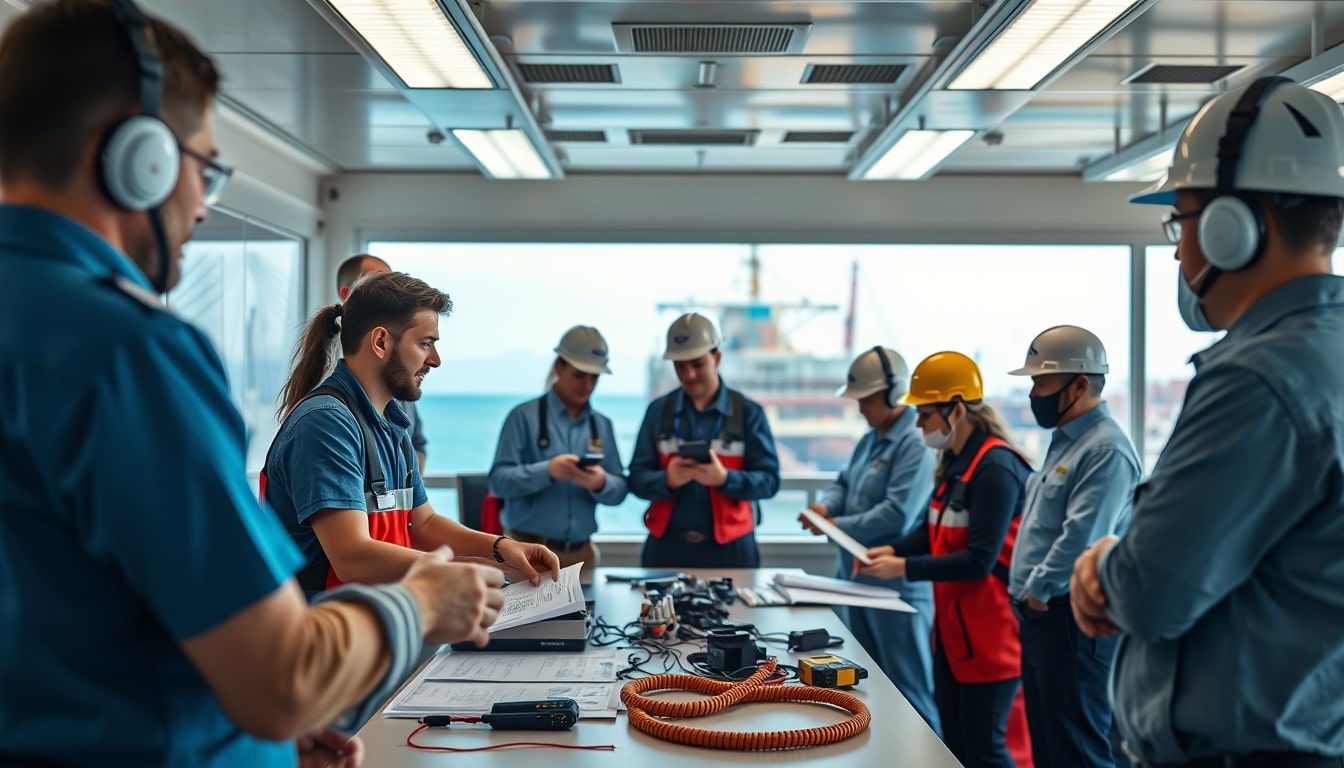




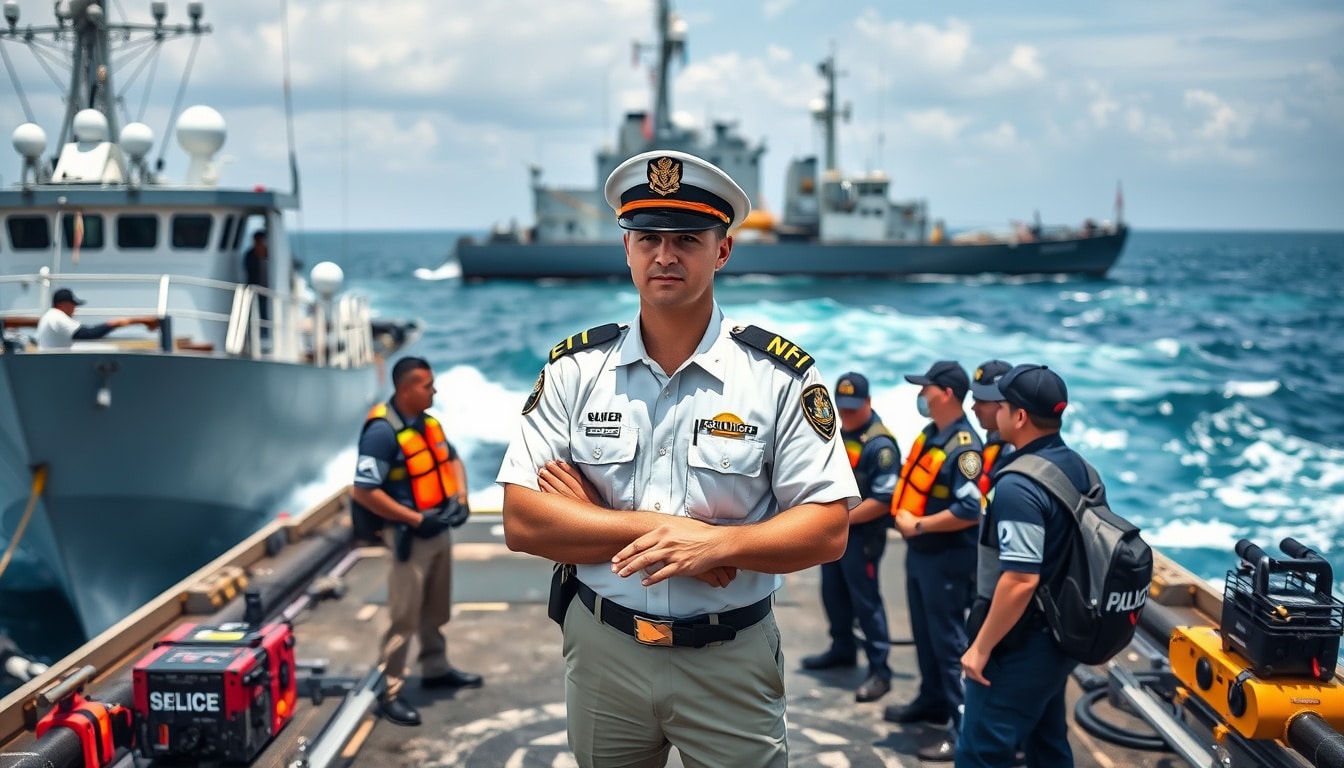
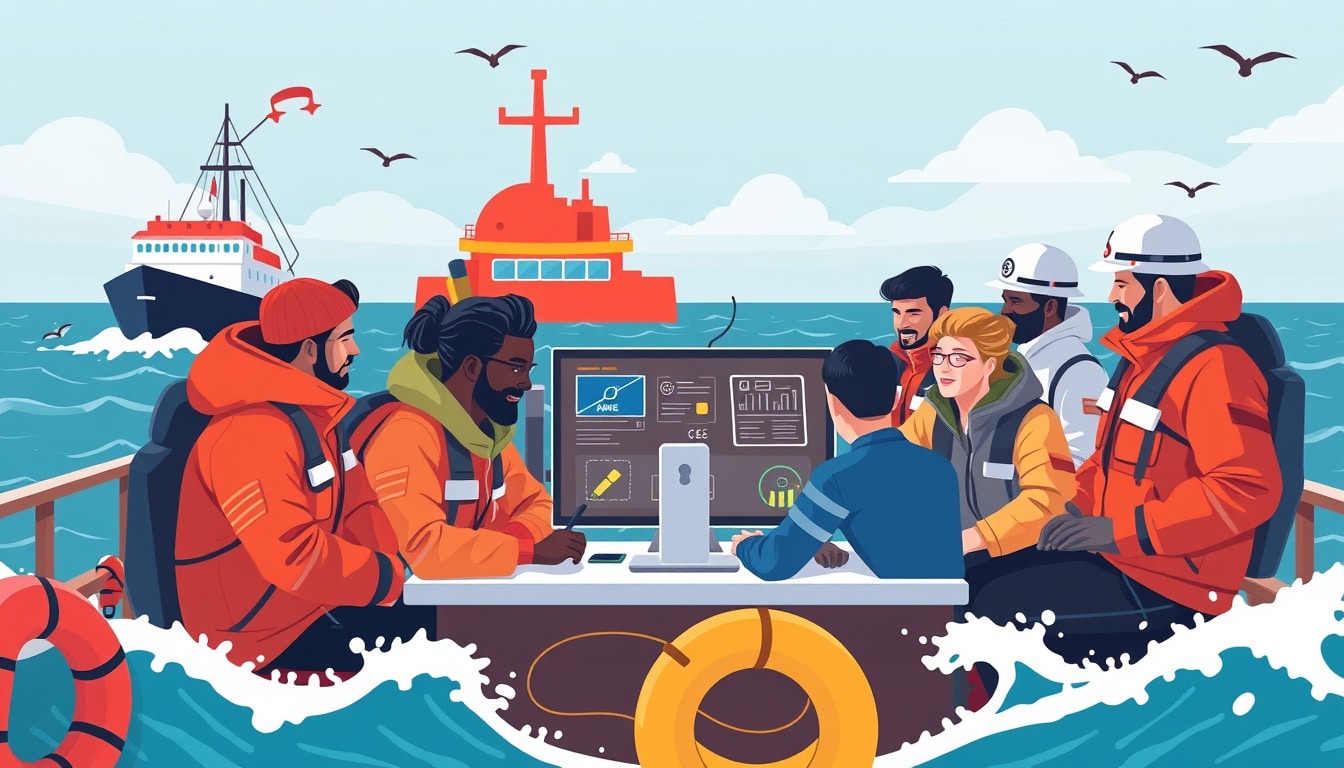




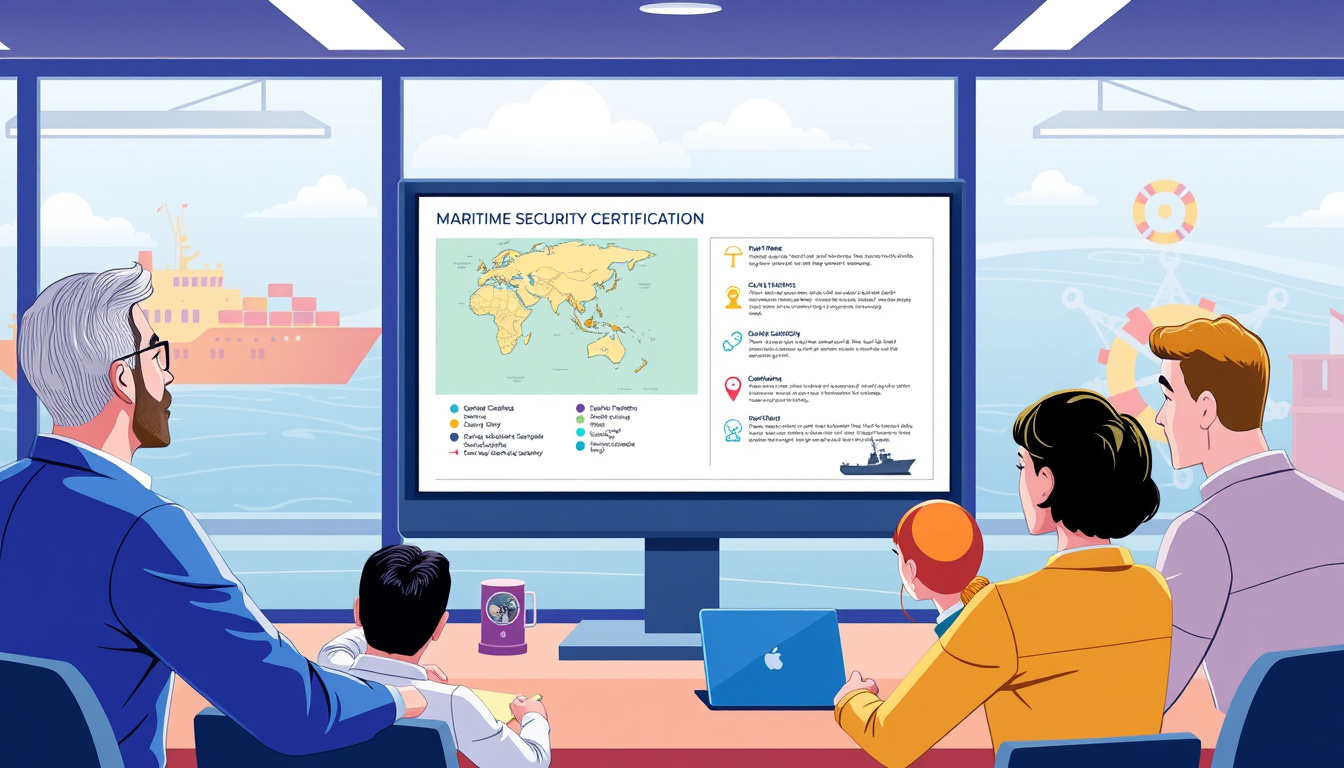

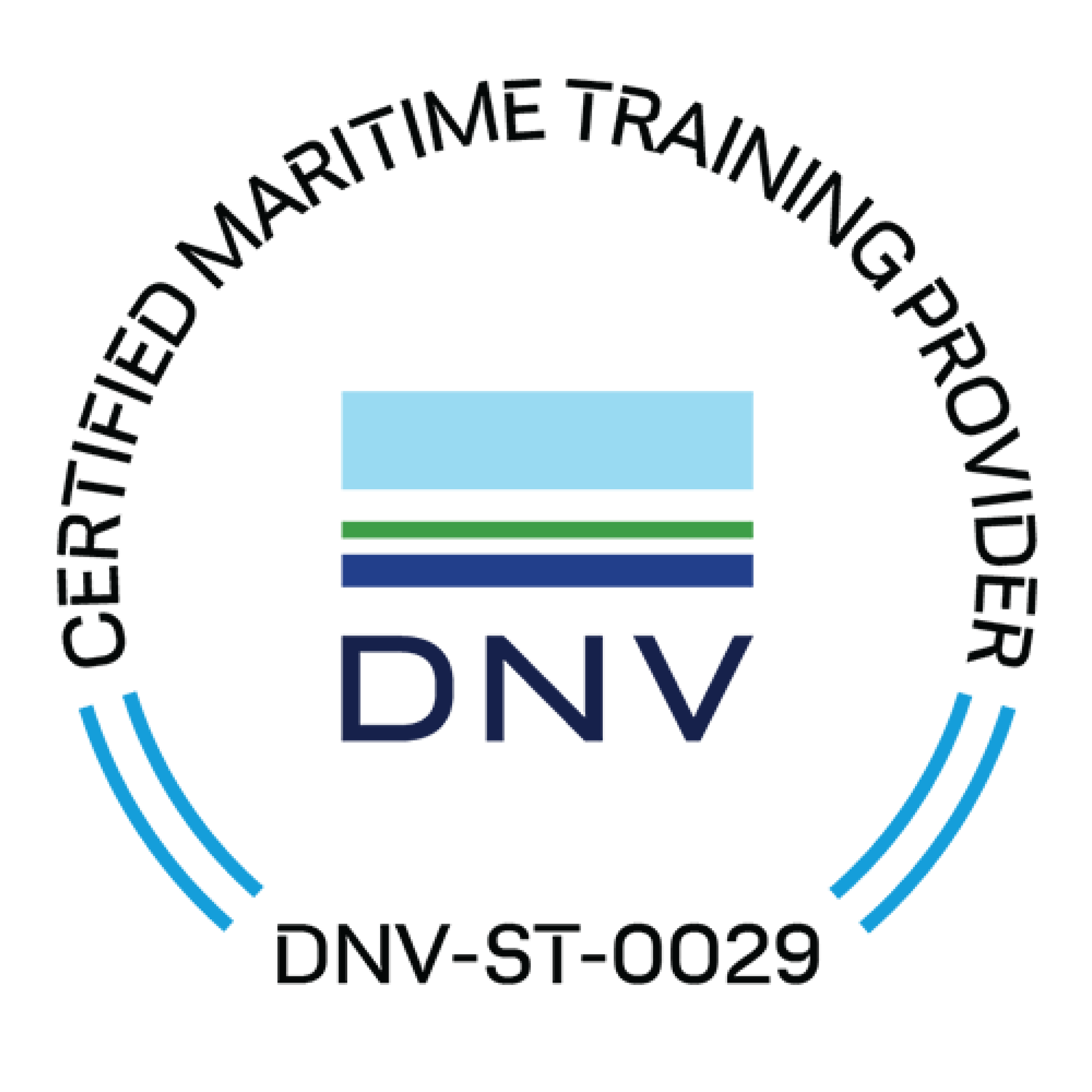
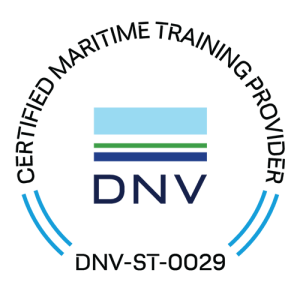 This achievement reflects the hard work, dedication, and high standards that Virtual Maritime Academy upholds in every facet of its operations. The DNV certification rigorously evaluates the effectiveness of our programs, ensuring that they meet international quality, transparency, and operational efficiency standards.
This achievement reflects the hard work, dedication, and high standards that Virtual Maritime Academy upholds in every facet of its operations. The DNV certification rigorously evaluates the effectiveness of our programs, ensuring that they meet international quality, transparency, and operational efficiency standards.


